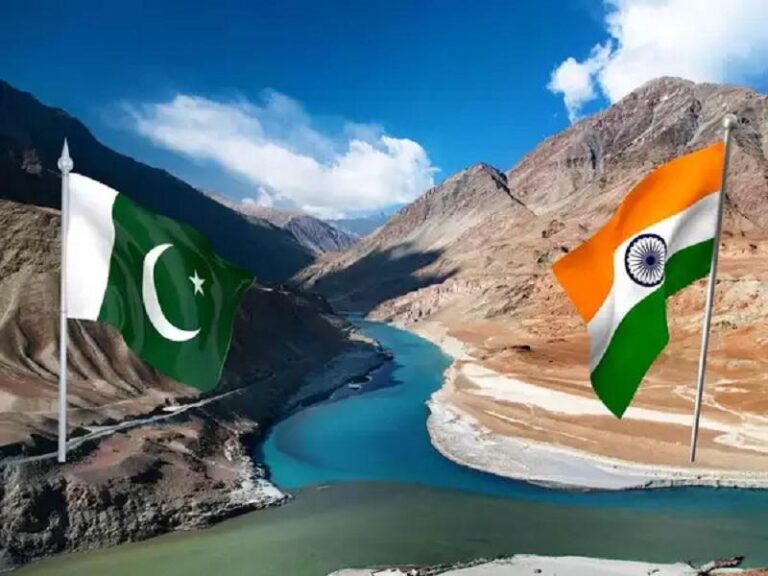Stalemate in India-Pakistan Water Agreement Persists Despite Ceasefire Developments
Recent developments in the ongoing ceasefire between India and Pakistan have not resolved the critical impasse surrounding a vital water-sharing agreement. Sources indicate that the Indus Waters Treaty, which was established in 1960 to govern the shared river systems of both nations, remains inactive. This treaty has become a meaningful point of contention amid rising national security concerns and environmental issues faced by both countries. As diplomatic efforts continue to unfold, the lack of progress on this essential agreement raises serious questions about regional stability and future water resource management, particularly as millions depend on these waterways for their livelihoods.
Ongoing Stalemate Over Water Sharing Agreement
While recent ceasefire agreements have sparked hope for improved relations between india and Pakistan, the deadlock over the Indus Waters Treaty persists. Reports suggest that unresolved disputes regarding water distribution and management are hindering any substantial negotiations as both nations maintain their respective stances firmly. The treaty’s purpose—to regulate how waters from the Indus River system are allocated—has become increasingly contentious due to geopolitical tensions and differing interpretations of water rights.
factors Contributing to Continued Deadlock:
- Heightened Tensions: Ongoing border conflicts and military confrontations overshadow diplomatic initiatives.
- Water Distribution Disputes: Issues related to dam construction and operation on shared rivers remain contentious.
- Political Pressures: Domestic political dynamics in both countries complicate any potential concessions regarding treaty terms.
| Country | Treaty Status | Recent Actions |
|———–|————————|—————————————–|
| India | Firm adherence | Expansion of projects on western rivers |
| Pakistan | seeking mediation | Complaints lodged with international organizations |
Consequences for Agriculture and Water Security
the prolonged suspension of this crucial water treaty is raising alarms about it’s impact on agriculture and overall water security within the region. Experts warn that farmers dependent on the Indus River system are already experiencing adverse effects due to uncertainty surrounding water availability. This unpredictability places additional stress on crop production, leading agrarian communities into a state of heightened anxiety.
Key Concerns Include:
- Declining Crop Yields: Variability in water supply threatens agricultural productivity, jeopardizing food security.
- Economic Strain: Farmers face escalating costs as they turn to alternative irrigation methods, increasing their financial burdens.
- Environmental Risks: Unsustainable extraction practices could result in severe long-term ecological damage.
Both nations must address enduring management strategies for their shared resources amidst these challenges. The anticipated reduction in available freshwater poses significant risks not only for agriculture but also for broader regional stability concerning water access.
Relevant Statistics:
| Country | Agricultural Water Usage (%) | Expected Crop Yield Decline (%) |
|———–|——————————-|———————————-|
| India | 90 | 15 |
| Pakistan | 80 | 20 |
Urgent Calls for Collaborative Solutions
Given the complexities surrounding this enduring stalemate over water resources between India and Pakistan, there is an increasing call for renewed dialogues aimed at collaborative solutions. Stakeholders emphasize that sustainable approaches must be prioritized when managing such a vital resource as freshwater within this region plagued by tension. Experts assert that without an effective framework governing these waters, millions face dire consequences as scarcity becomes more pronounced—especially with climate change exacerbating existing challenges.
Proposed Collaborative Strategies:
- Bilateral Management committees: Establishing platforms where data can be shared transparently while addressing disputes collaboratively.
- Joint Environmental Assessments: Conducting evaluations together regarding ecological impacts stemming from policy decisions affecting waterways.
- Crisis response Protocols: Developing immediate action plans during acute shortages or conflicts over resource allocation.
Efforts should focus not only on resolving current disputes but also rebuilding trust among involved parties through inclusive frameworks prioritizing public welfare—potentially paving pathways toward long-term cooperation ensuring equitable access to essential resources like freshwater across generations.
Looking Ahead: Future Prospects
the ongoing suspension of India’s agreement with Pakistan concerning shared waters highlights intricate bilateral relations even amidst recent ceasefire efforts. As both nations navigate through delicate diplomatic terrains, understanding how this standoff affects regional ecological sustainability remains paramount. Various sectors—including agriculture, industry stakeholders, and local communities—find themselves caught in precarious situations exacerbating existing tensions further still; thus drawing attention from international observers keenly watching whether renewed discussions can lead towards fairer management practices concerning mutual resources moving forward into an uncertain future where cooperation will be key to fostering stability across borders within South Asia’s complex landscape.



